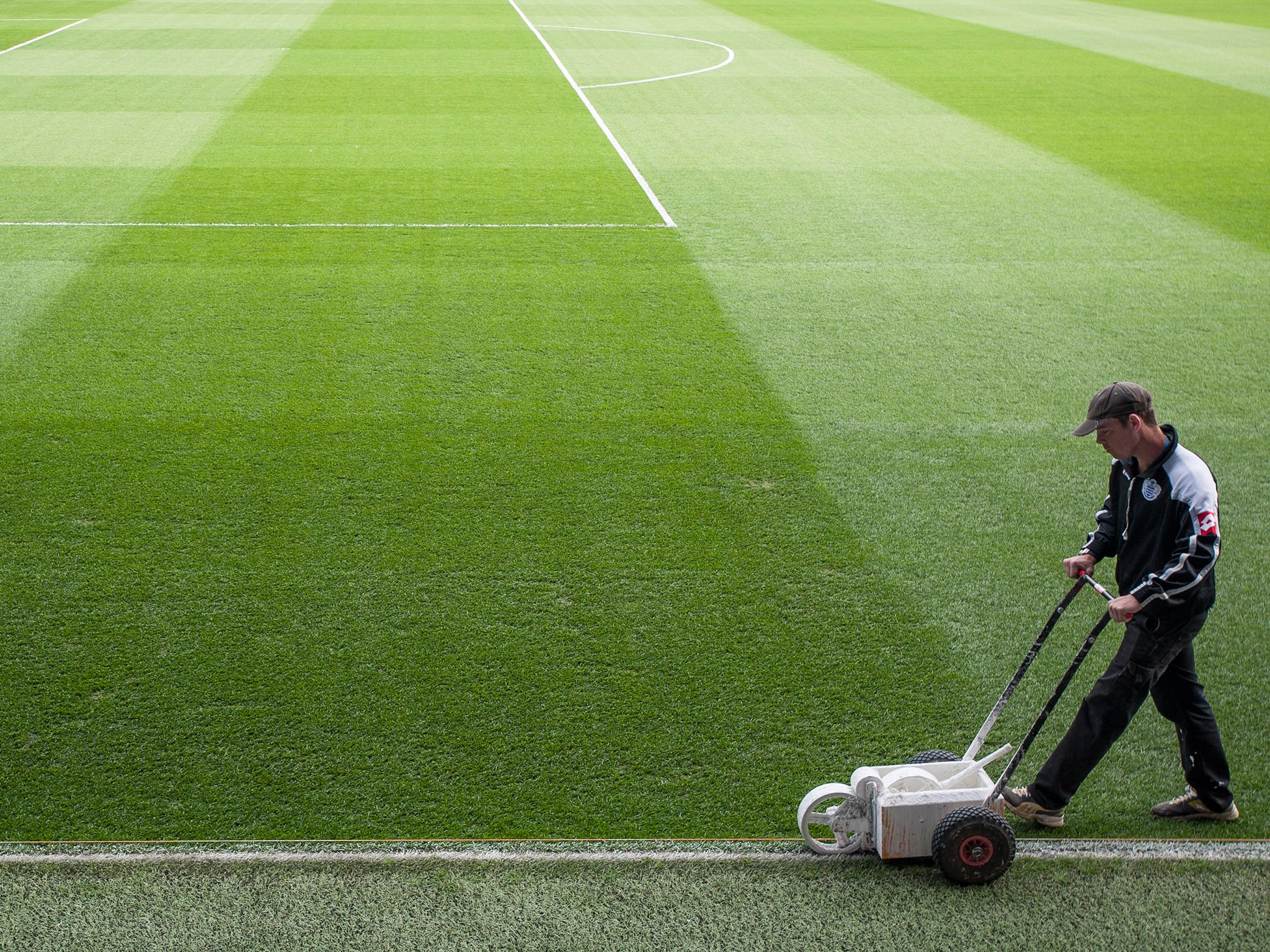Your support helps us to tell the story
From reproductive rights to climate change to Big Tech, The Independent is on the ground when the story is developing. Whether it's investigating the financials of Elon Musk's pro-Trump PAC or producing our latest documentary, 'The A Word', which shines a light on the American women fighting for reproductive rights, we know how important it is to parse out the facts from the messaging.
At such a critical moment in US history, we need reporters on the ground. Your donation allows us to keep sending journalists to speak to both sides of the story.
The Independent is trusted by Americans across the entire political spectrum. And unlike many other quality news outlets, we choose not to lock Americans out of our reporting and analysis with paywalls. We believe quality journalism should be available to everyone, paid for by those who can afford it.
Your support makes all the difference.Football is not the only debate surrounding Manchester’s two Premier League clubs as they prepare to take the field for Sunday’s derby.
Both are under pressure to pay their staff the Living Wage, specifically their match-day workers. They greatly outnumber full-time staff who have to receive it by 2016-17 under a deal agreed by the Premier League.
The voluntary Living Wage – as distinct from George Osborne’s rebranded minimum wage – guarantees a basic standard of living to its recipients.
Many of the UK’s biggest employers have signed on; Lidl recently became the first high street grocer to do so. One might think that a national sport awash with money from a record-breaking TV deal, combined with ever higher revenues from replica shirts and match-day tickets, would be happy to join in.
It could provide some much-needed positive PR, quite apart from the fact that, economically, it works. Living Wage employers benefit from less absenteeism, and better job performance.
Premiership football is about more than just entertainment. It is a national obsession, and an important cultural export that is followed around the world. It ought to be setting an example. And yet progress within football has been glacial. While players, their managers and executives make millions of pounds, the people who flip burgers, sell programmes and clean up after the punters have gone home are forgotten about.
The way that an industry that has never had it so good is turning its back on the people who keep the show on the road is morally indefensible.
Manchester City is, at least, inching towards doing better by favouring Living Wage bidders for contracts. Good, but not good enough. United unusually employ their match-day staff directly. They could rectify the situation overnight, but refuse to budge.
The club has championship aspirations on the field, but when it comes to the treatment of staff off it, they are in the relegation zone. Sadly, they are far from alone.

Join our commenting forum
Join thought-provoking conversations, follow other Independent readers and see their replies
Comments